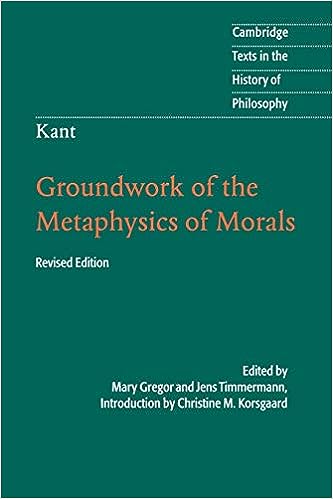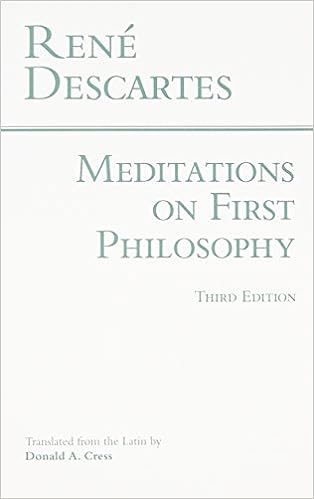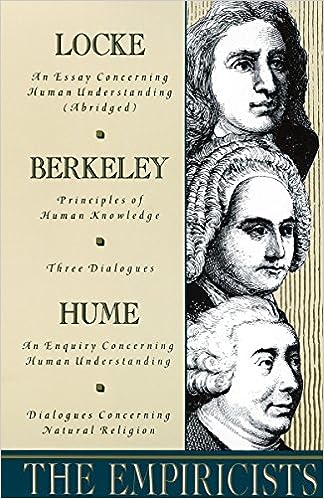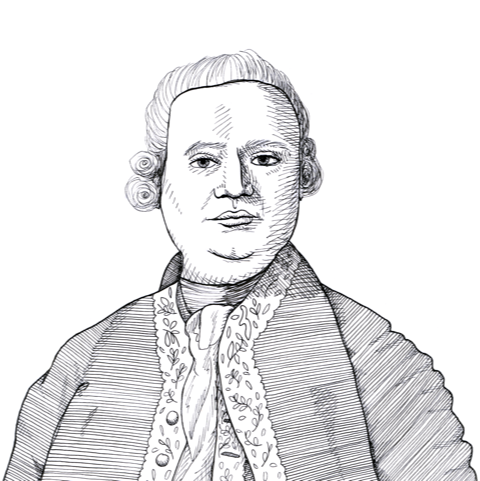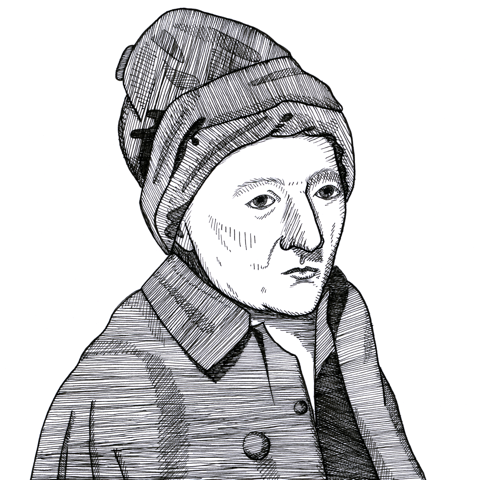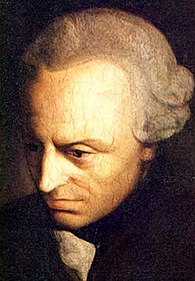
Critique of Pure Reason
- Immanuel Kant (author)
- Friedrich Max Müller (translator)
One of Kant’s most important philosophical works and one of the most important of the Enlightenment as well. In it he argues that the world that we know is structured by the way that we perceive and think about the world. Reason is universal and objective but our understanding and imagination shape the way we experience the world.
Table of Contents
- Back to Top
- TABLE OF CONTENTS
- DEDICATION
- TABLE OF CONTENTS TO THE FIRST EDITION1
- PREFACE1
- TRANSLATOR’S PREFACE
- Why I thought I might translate Kant’s Critique
- Why I thought I ought to translate Kant’s Critique
- Why a study of Kant’s Critique seemed necessary at present
- Kant’s Metaphysic in relation to Physical Science
- Kant’s Philosophy as judged by History
- On the Text of Kant’s Critique of Pure Reason
- Critical Treatment of the Text of Kant’s Critique
- TRANSLATOR’S PREFACE TO SECOND EDITION
- Introduction Edition: Muller_1922; Page: [1]
- I: THE IDEA OF TRANSCENDENTAL PHILOSOPHY
- Of the Distinction between Analytical and Synthetical Judgments
- II: DIVISION OF TRANSCENDENTAL PHILOSOPHY
- I: THE ELEMENTS OF TRANSCENDENTALISM
- PART I: Transcendental Æsthetic Edition: Muller_1922; Page: [19]
- Section I: Of Space
- Conclusions from the Foregoing Concepts Edition: Muller_1922; Page: [26]
- Section II: Of Time
- Conclusions from the foregoing concepts
- Explanation
- GENERAL OBSERVATIONS ON TRANSCENDENTAL ÆSTHETIC
- PART II: Transcendental Logic Edition: Muller_1922; Page: [50]
- INTRODUCTION THE IDEA OF A TRANSCENDENTAL LOGIC
- I: Of Logic in General
- II: Of Transcendental Logic
- III: Of the Division of General Logic into Analytic and Dialectic
- IV: Of the Division of Transcendental Logic into Transcendental Analytic and Dialectic
- Division I: Transcendental Analytic in two books, with their chapters and sections
- BOOK I: ANALYTIC OF CONCEPTS
- CHAPTER I: METHOD OF DISCOVERING ALL PURE CONCEPTS OF THE UNDERSTANDING
- Section I: Of the Logical Use of the Understanding in General
- Section II: Of the Logical Function of the Understanding in Judgments Edition: Muller_1922; Page: [70]
- Section III: Of the Pure Concepts of the Understanding, or of the Categories
- CHAPTER II: OF THE DEDUCTION OF THE PURE CONCEPTS OF THE UNDERSTANDING Edition: Muller_1922; Page: [84]
- Section I: Of the Principles of a Transcendental Deduction in General
- Transition to a Transcendental Deduction of the Categories
- Section II: Of the a priori Grounds for the Possibility of Experience
- Preliminary Remark
- I: Of the Synthesis of Apprehension in Intuition
- II: Of the Synthesis of Reproduction in Imagination
- III: Of the Synthesis of Recognition in Concepts Edition: Muller_1922; Page: [103]
- IV: Preliminary Explanation of the Possibility of the Categories as Knowledge a priori
- Section III: Of the Relation of the Understanding to Objects in General, and the Possibility of Knowing Them a priori Edition: Muller_1922; Page: [115]
- SUMMARY REPRESENTATION OF THE CORRECTNESS AND OF THE ONLY POSSIBILITY OF THIS DEDUCTION OF THE PURE CONCEPTS OF THE UNDERSTANDING
- BOOK II: ANALYTIC OF PRINCIPLES
- INTRODUCTION OF THE TRANSCENDENTAL FACULTY OF JUDGMENT IN GENERAL
- CHAPTER I: OF THE SCHEMATISM OF THE PURE CONCEPTS OF THE UNDERSTANDING Edition: Muller_1922; Page: [137]
- CHAPTER II: SYSTEM OF ALL PRINCIPLES OF THE PURE UNDERSTANDING Edition: Muller_1922; Page: [148]
- Section I: Of the Highest Principle of all Analytical Judgments
- Section II: Of the Highest Principle of all Synthetical Judgments Edition: Muller_1922; Page: [154]
- Section III: Systematical Representation of all Synthetical Principles of the Understanding
- I: [OF THE AXIOMS OF INTUITION1 Principle of the Pure Understanding
- II: [Anticipations of Perception
- III: [The Analogies of Experience
- A: [First Analogy Principle of Permanence1 Edition: Muller_1922; Page: [182]
- Proof of the First Analogy
- B: [Second Analogy Principle of Production1
- Proof
- C: [Third Analogy Principle of Community
- Proof
- IV: The Postulates of Empirical Thought in General
- Explanation Edition: Muller_1922; Page: [219]
- CHAPTER III: ON THE GROUND OF DISTINCTION OF ALL SUBJECTS INTO PHENOMENA AND NOUMENA
- APPENDIX Of the Amphiboly of Reflective Concepts, owing to the Confusion of the Empirical with the Transcendental Use of the Understanding
- I.: Identity and Difference
- II.: Agreement and Opposition
- III.: The Internal and the External
- IV.: Matter and Form
- NOTE ON THE AMPHIBOLY OF REFLECTIVE CONCEPTS
- Division II: Transcendental Dialectic in two books, with their chapters and sections Edition: Muller_1922; Page: [293]
- INTRODUCTION
- 1.: Of Transcendental Appearance (Illusion)
- 2.: Of Pure Reason, as the Seat of Transcendental Illusion
- A.: Of Reason in General
- B.: Of the Logical Use of Reason Edition: Muller_1922; Page: [303]
- C.: Of the Pure Use of Reason
- BOOK I: OF THE CONCEPTS OF PURE REASON Edition: Muller_1922; Page: [310]
- First Section Of Ideas in General
- Second Section Of Transcendental IdeasEdition: Muller_1922; Page: [321]
- Third Section System of Transcendental IdeasEdition: Muller_1922; Page: [333]
- BOOK II: OF THE DIALECTICAL CONCLUSIONS OF PURE REASON
- CHAPTER I: OF THE PARALOGISMS OF PURE REASON Edition: Muller_1922; Page: [341]
- [The First Paralogism of Substantiality
- Criticism of the First Paralogism of Pure2 Psychology
- The Second Paralogism of Simplicity
- Criticism of the Second Paralogism of Transcendental Psychology
- The Third Paralogism of Personality
- Criticism of the Third Paralogism of Transcendental Psychology
- The Fourth Paralogism of Ideality (with Regard to External Relations)
- Criticism of the Fourth Paralogism of Transcendental Psychology
- CONSIDERATION on the Whole of Pure Psychology, as affected by these ParalogismsEdition: Muller_1922; Page: [381]
- CHAPTER II: THE ANTINOMY OF PURE REASON
- Section I: System of Cosmological Ideas
- Section II: Antithetic of Pure Reason
- FIRST CONFLICT OF THE TRANSCENDENTAL IDEAS Edition: Muller_1922; Page: [426]
- Thesis
- Proof
- Antithesis Edition: Muller_1922; Page: [427]
- Proof
- OBSERVATIONS ON THE FIRST ANTINOMY Edition: Muller_1922; Page: [430]
- I: On the Thesis
- II: On the Antithesis Edition: Muller_1922; Page: [431]
- SECOND CONFLICT OF THE TRANSCENDENTAL IDEAS Edition: Muller_1922; Page: [434]
- Thesis
- Proof
- Antithesis Edition: Muller_1922; Page: [435]
- Proof
- OBSERVATIONS ON THE SECOND ANTINOMY Edition: Muller_1922; Page: [438]
- I: On the Thesis
- II: On the Antithesis Edition: Muller_1922; Page: [439]
- THIRD CONFLICT OF THE TRANSCENDENTAL IDEAS Edition: Muller_1922; Page: [444]
- Thesis
- Proof
- Antithesis Edition: Muller_1922; Page: [445]
- Proof
- OBSERVATIONS ON THE THIRD ANTINOMY Edition: Muller_1922; Page: [448]
- I: On the Thesis
- II: On the Antithesis Edition: Muller_1922; Page: [449]
- FOURTH CONFLICT OF THE TRANSCENDENTAL IDEAS Edition: Muller_1922; Page: [452]
- Thesis
- Proof
- Antithesis
- Proof
- OBSERVATIONS ON THE FOURTH ANTINOMY Edition: Muller_1922; Page: [456]
- I: On the Thesis
- II: On the Antithesis Edition: Muller_1922; Page: [457]
- Section III: Of the Interest of Reason in these Conflicts Edition: Muller_1922; Page: [462]
- Section IV: Of the Transcendental Problems of Pure Reason, and the Absolute Necessity of their Solution
- Section V: Sceptical Representation of the Cosmological Questions in the Four Transcendental Ideas Edition: Muller_1922; Page: [485]
- Section VI: Transcendental Idealism as the Key to the Solution of Cosmological Dialectic
- Section VII: Critical Decision of the Cosmological Conflict of Reason with itself
- Section VIII: The Regulative Principle of Pure Reason with Regard to the Cosmological Ideas Edition: Muller_1922; Page: [508]
- Section IX: Of the Empirical Use of the Regulative Principle of Reason with Regard to all Cosmological Ideas
- I: Solution of the Cosmological Idea of the Totality of the Composition of Phenomena in an Universe
- II: Solution of the Cosmological Idea of the Totality of the Division of a Whole given in Intuition
- Concluding Remarks on the Solution of the Transcendental-mathematical Ideas, and Preliminary Remark for the Solution of the Transcendental-dynamical Ideas Edition: Muller_1922; Page: [528]
- III: Solution of the Cosmological Ideas with Regard to the Totality of the Derivation of Cosmical Events from their Causes
- Possibility of a Causality through Freedom, in Harmony with the Universal Law of Natural Necessity Edition: Muller_1922; Page: [538]
- Explanation of the Cosmological Idea of Freedom in Connection with the General Necessity of Nature Edition: Muller_1922; Page: [542]
- IV: Solution of the Cosmological Idea of the Totality of the Dependence of Phenomena, with Regard to their Existence in General Edition: Muller_1922; Page: [559]
- Concluding Remark on the Whole Antinomy of Pure Reason
- CHAPTER III: THE IDEAL OF PURE REASON
- Section I: Of the Ideal in General
- Section II: Of the Transcendental Ideal (Prototypon Transcendentale)
- Section III: Of the Arguments of Speculative Reason in Proof of the Existence of a Supreme Being
- Section IV: Of the Impossibility of an Ontological Proof of the Existence of God Edition: Muller_1922; Page: [592]
- Section V: Of the Impossibility of a Cosmological Proof of the Existence of God Edition: Muller_1922; Page: [603]
- Discovery and Explanation of the Dialectical Illusion in all Transcendental Proofs of the Existence of a Necessary Being
- Section VI: Of the Impossibility of the Physico-theological Proof
- Section VII: Criticism of all Theology based on Speculative Principles of Reason Edition: Muller_1922; Page: [631]
- APPENDIX to the Transcendental Dialectic
- Of the Regulative Use of the Ideas of Pure Reason
- Of the Ultimate Aim of the Natural Dialectic of Human Reason Edition: Muller_1922; Page: [669]
- II: METHOD OF TRANSCENDENTALISM Edition: Muller_1922; Page: [705]
- Chapter I: The Discipline of Pure Reason
- Section I: The Discipline of Pure Reason in its Dogmatical Use
- Section II: The Discipline of Pure Reason in its Polemical Use
- The Impossibility of a Sceptical Satisfaction of Pure Reason in Conflict with itself Edition: Muller_1922; Page: [758]
- Section III: The Discipline of Pure Reason with Regard to Hypotheses
- Section IV: The Discipline of Pure Reason with Regard to its Proofs
- Chapter II: The Canon of Pure Reason Edition: Muller_1922; Page: [795]
- First Section: Of the Ultimate Aim of the Pure Use of our Reason
- Section II: Of the Ideal of the Summum Bonum as determining the Ultimate Aim of Pure Reason
- Section III: Of Trowing, Knowing, and Believing Edition: Muller_1922; Page: [820]
- Chapter III: The Architectonic of Pure Reason Edition: Muller_1922; Page: [832]
- Chapter IV: The History of Pure Reason Edition: Muller_1922; Page: [852]
- SUPPLEMENT I
- MOTTO TO SECOND EDITION
- Baco de Verulamio Instauratio magna: Praefatio
- SUPPLEMENT II
- Preface to the Second Edition. 1787. Edition: Muller_1922; Page: [vii]
- SUPPLEMENT III
- TABLE OF CONTENTS OF THE Second Edition (1787), WITH THE PAGING OF THAT EDITION
- SUPPLEMENT IV
- INTRODUCTION
- I: Of the Difference between Pure and Empirical Knowledge
- II: We are in Possession of Certain Cognitions a priori, and even the Ordinary Understanding is never without them
- SUPPLEMENT V
- SUPPLEMENT VI
- V: In all Theoretical Sciences of Reason Synthetical Judgments a priori are contained as Principles
- VI: The General Problem of Pure Reason
- SUPPLEMENT VII
- SUPPLEMENT VIII
- § 3: Transcendental Exposition of the Concept of Space
- SUPPLEMENT IX
- SUPPLEMENT X
- § 5: Transcendental Exposition of the Concept of Time
- SUPPLEMENT XI
- Conclusion of the Transcendental Æsthetic
- SUPPLEMENT XII
- § 11
- § 12
- SUPPLEMENT XIII
- SUPPLEMENT XIV
- OF THE DEDUCTION OF THE PURE CONCEPTS OF THE UNDERSTANDING
- Second Section: Transcendental Deduction of the Pure Concepts of the Understanding
- § 15: Of the Possibility of Connecting (conjunctio) in General
- § 16: The Original Synthetical Unity of Apperception
- § 17: The Principle of the Synthetical Unity of Apperception is the Highest Principle of all Employment of the Understanding
- § 18: What is the Objective Unity of Self-consciousness?
- § 19: The Logical Form of all Judgments consists in the Objective Unity of Apperception of the Concepts contained therein
- § 20: All Sensuous Intuitions are subject to the Categories as to Conditions under which alone their Manifold Contents can come together in one Consciousness
- § 21: Note
- § 22: The Category admits of no other Employment for the Cognition of Things, but its Application to Objects of Experience
- § 23
- § 24: Of the Application of the Categories to Objects of the Senses in General
- § 25
- § 26: Transcendental Deduction of the Universally Possible Employment of the Pure Concepts of the Understanding in Experience
- § 27: Results of this Deduction of the Concepts of the Understanding
- Comprehensive View of this Deduction
- SUPPLEMENT XV
- SUPPLEMENT XVI a
- I: Axioms of Intuition
- Proof
- SUPPLEMENT XVI b
- II: Anticipations of Perception
- Proof
- SUPPLEMENT XVII
- III: Analogies of Experience
- Proof
- SUPPLEMENT XVIII
- A. First Analogy Principle of the Permanence of Substance
- Proof
- SUPPLEMENT XIX
- B. Second Analogy Principle of the Succession of Time, according to the Law of Causality
- Proof
- SUPPLEMENT XX
- C. Third Analogy Principle of Coexistence, according to the Law of Reciprocity or Community
- Proof
- SUPPLEMENT XXI
- Refutation of Idealism
- Theorem The simple, but empirically determined Consciousness of my own existence, proves the Existence of objects in space outside myself.
- Proof
- SUPPLEMENT XXII
- General Note on the System of the Principles
- SUPPLEMENT XXIII
- SUPPLEMENT XXIV
- SUPPLEMENT XXV
- SUPPLEMENT XXVI
- SUPPLEMENT XXVII
- Refutation of Mendelssohn’s Proof of the Permanence of the Soul
- Conclusion of the Solution of the Psychological Paralogism
- General Note on the Transition from Rational Psychology to Cosmology
- SUPPLEMENT XXVIII
Loading...
Related People
Critical Responses
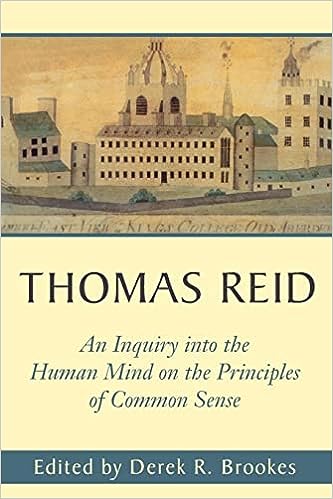
Book
An Inquiry into the Human Mind on the Principles of Common SenseThomas Reid
Known as the Father of Common Sense, Reid offers an alternative response to Hume, Locke, and Berkley’s empiricism.
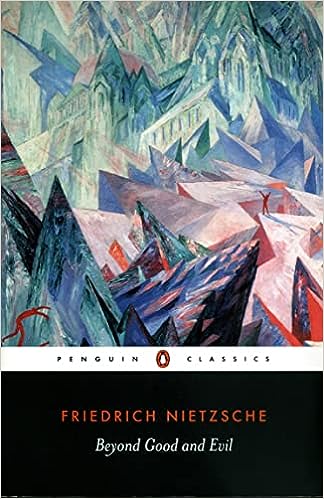
Book
Beyond Good and EvilFriedrich Nietzsche
Nietzsche criticizes Kant and all Western philosophical tradition.
Connected Readings
